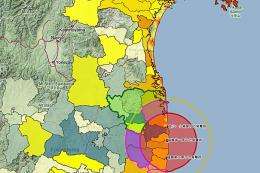Map making, made easy: Web platform lowers barrier to collaboration

Soon, scholars worldwide will have an easier time creating, publishing, and sharing maps and other geospatial data, thanks to the release of WorldMap, an open source software platform that fills the growing niche between desktop mapping applications and more lightweight, nimble Web solutions.
Developed by Harvard’s Center for Geographic Analysis, WorldMap allows scholars to share access to view and edit geospatial information. Unlike similar tools, WorldMap allows the use of large, detailed datasets, and supports a number of formats.
First released in beta last July, the software already boasts 1,250 users from more than 100 countries. Users have contributed more than 1,700 mapping layers and created more than 500 map collections to support their research.
The bulk of the best geographic data resides outside any single institution. WorldMap takes a unique approach to this challenge by providing the global community with a platform to meet its needs. By so doing, the system increases the amount of high-quality spatial data in the public sphere.
WorldMap allows scholars to integrate information from diverse sources by making it possible to overlay data in users’ own computers with materials on the Web. The system also lets users incorporate paper maps, perform online digitizing, and link locations to other media.
The system allows for collaborations that can range from small groups in which all participants have editorial rights to interactive publications for large audiences. The system is also designed to support the research process, by allowing information to initially be made private, before being opened to larger groups for refinement, and finally to be published or released to the public.
Free and open to the public, WorldMap is cloud-hosted as well as open source, meaning new functions can be added to the system. A handful of new features are under development, including the ability to visualize change over time, searching place names for current and historic locations, and creating and editing online map layers.
More information: worldmap.harvard.edu/
Provided by Harvard University
This story is published courtesy of the Harvard Gazette, Harvard University's official newspaper. For additional university news, visit Harvard.edu.




















